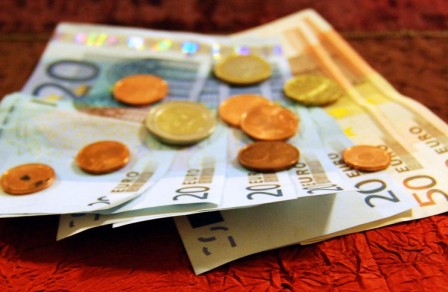EU: Will The 750 Billion Euro Bailout Stop The Debt Crisis?
The European Union, in conjunction with the International Monetary Fund, has established a 750 Billion Euro ($ 975 Billion) aid package last night. The size of the package is a lot higher than originally expected, in an effort to send a strong message to worldwide financial markets. The European Union will defend its currency, and the economic stability of its members no matter what it takes.
Europe finance ministers and heads of central banks are hoping the deal will prevent the Euro to get more hits from the debt crisis that has rocked Greece and still threatens to spread to Spain, Portugal and Ireland. The deal consists of 440 Billion Euros from the 16 members of the Euro zone, with an additional 60 Billion coming from the European commission, and another 250 Billion coming from the International Monetary Fund. According to the European Central Bank, the measure is designed to help improve liquidity conditions, and to prevent the spread of strains to other markets and other financial centers.
The world financial markets rebounded sharply today following the announcement of the large bailout fund, with the Euro rising by 2 percent against the US dollar. EU Commissioner for economic and monetary affairs, Olli Rehn, told a news conference after the 11 hours marathon negotiation that “It proves that we shall defend the Euro whatever it takes”.
During the week-end Sweden’s finance minister attacked financial speculators and blamed the “wolf-pack behaviors” of financial markets for the Euro zone troubles. In Europe, officials said they would fight speculative investors they blame for aggravating the public debt crisis. But some on the other side of the Atlantic are calling the bailout plan “chasing a dream”.
“By establishing a 750 Billion Euro fund to bailout Greece and aid other struggling governments, Germany and other strong European states are chasing a dream-a single European currency and broader European unity- that may have no place in reality,” said Peter Morici, a professor at the University of Maryland.
Despite the doubtfulness of Mr. Morici, and probably some in Wall Street, the EU is making a stand. The current crisis has become a test for Europe currency and ultimately Europe’s unity. Further, the curious, and still unexplained, 1000 points Dow Jones sudden drop of last week and the current crisis affecting the Euro zone are clear indicators that the 2008 global financial crisis is far from over.
This new phase of the financial crisis also reiterate yet again the urgent need for reforms on regulation of the global financial system, on setting up some real oversight and supervision, in particular in the matter of derivatives, insurance swaps and the role of rating agencies.
Related Articles














One Response to EU: Will The 750 Billion Euro Bailout Stop The Debt Crisis?
You must be logged in to post a comment Login